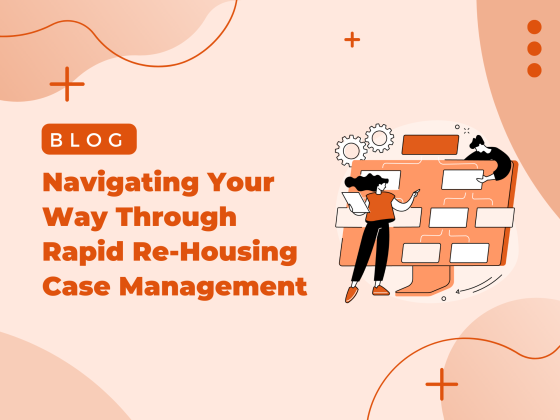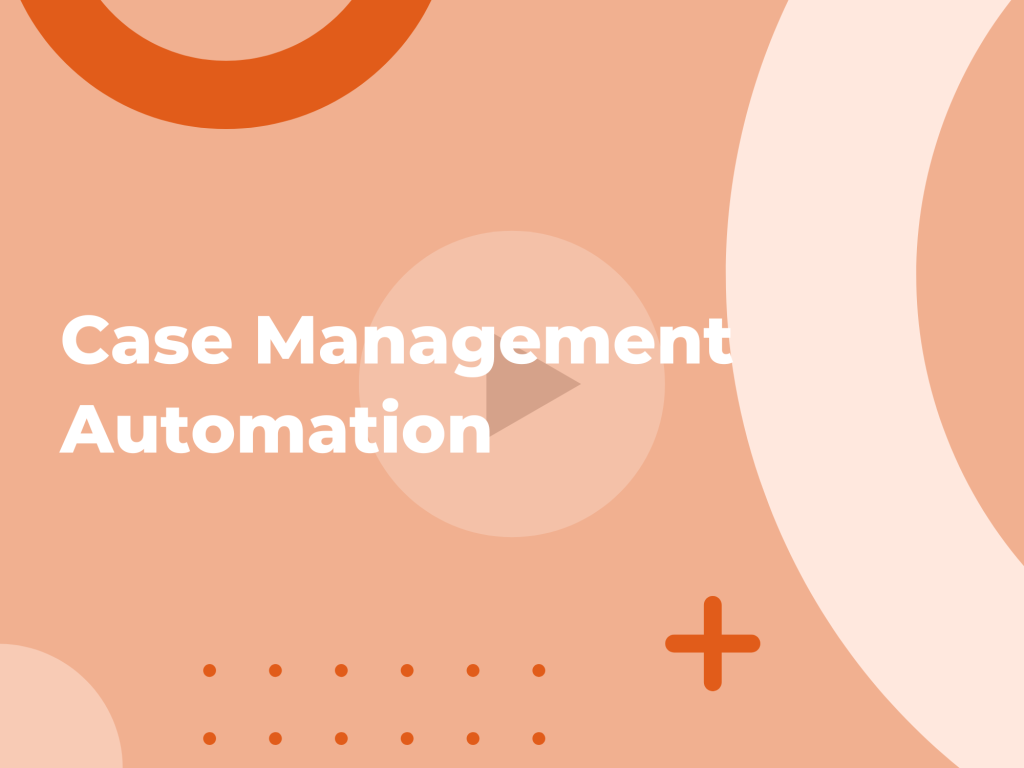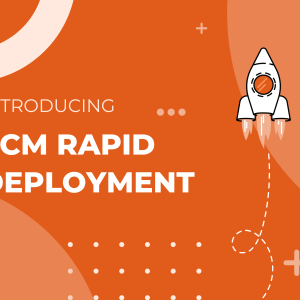Navigating Your Way Through Rapid Re-Housing Case Management
The housing crisis in the US is becoming more and more dire for many Americans as inflation has reached a 40 year high and COVID-related stimulus programs and eviction protections have ended. Due to the pandemic, we do not have an accurate count of homelessness individuals in the U.S. from 2021, but we know that in 2020 over 580,000 Americans experienced homelessness and shelters are currently reporting long waiting lists again. We know that the “lowest-income families are hardest hit by rising rents and lack of supply” (Shea, April, 2022, Washington Post) and this is only worsened by higher interest rates causing otherwise likely homeowners to rent instead. Organizations providing services to the homeless are using every resource available to help families find stable and safe housing, even with the incredible shortage of affordable housing in this country.
Among the many different types of homelessness programs such as emergency shelter, transitional housing and permanent supportive housing, rapid re-housing programs are among the most highly regarded homelessness programs by the Department of Housing and Urban Development (HUD) for a couple of reasons. Rapid re-housing programs have a proven record of keeping families housed and they have a lower price tag than other programs with similar goals. In HUD’s Family Options Study , the average monthly cost of a rapid re-housing program in 2012 was $880, while transitional housing was $2,706 and emergency shelter was $4,819. Additionally, rapid-rehousing programs do not require any preconditions such as employment, income, or sobriety and the services offered are tailored to the needs of the family.
The goals of the program are to help individuals and families obtain safe and affordable housing as quickly as possible, increase self-sufficiency, and maintain housing over time. By primarily focusing on connecting people with a home, the other issues an individual is facing become more feasible. Without safe and reliable housing, one cannot possibly be expected to land a new job, take good care of children, or manage chronic health issues. A secure roof over your head and a place to call home is fundamental in overcoming other life challenges.
Rapid re-housing programs are made up of 3 distinct services:
-
- Housing identification services
- Financial assistance for housing-related expenses
- Case management services
These services make-up pre-housing and post-housing stages in a rapid re-housing program where a client moves from being referred to the program to successfully exiting the program:
- Intake and Assessment: After a client is referred to a rapid re-housing program either by a shelter or another community agency, they are enrolled in the program through an intake process. During this process, barriers to housing are identified through an assessment and the client is assigned a case manager. Additionally, for most federally funded programs an HMIS assessment is completed upon enrollment.
- Pre-housing Case Management: Once enrolled, a rapid re-housing case manager is assigned to the client and their family to move through the pre-housing case management process. This process includes:
-
- Prioritizing housing barriers to work on
- Assessing client finances and resources
- Identifying safe and stable housing
- Attaining safe and stable housing
During this phase the case manager and client work together to find the best housing based on family needs such as proximity to school/work, availability of resources, safety, and cost. They also work together to come up with a financial assistance plan where the client works towards being able to maintain the residence without rapid re-housing funds. Finally, they work to move into housing through collaboration with the landlord and other community resources to ensure the family has what they need.
- Post-Housing Case Management: After the client and their family is moved in, the case manager continues to engage with the client to ensure they are maintaining their housing. At this stage, the case manager’s focus is to help the client put resources in place to support sustainable housing. The client may attain employment if previously unemployed, or find better employment to ensure finances for housing are secure. If an incident occurs, a case manager is able to step in and help resolve any issues between the client and landlord as well. During this time, an HMIS assessment is typically completed again as new resources are put in place and must be documented.
- Program Exit: After the client’s family has been maintaining their housing successfully for a specified period of time, the client is exited from the program. At program exit an HMIS assessment is completed as well.
Tracking the services and stages that make up a rapid re-housing program process is important not only for compliance purposes, but also to make sure that clients are receiving quality support, helping to ensure sustainable housing. Exponent Case Management can help programs with both of these aspects of data collection. ECM’s HMIS module helps case managers make sure they are collecting accurate client and service information at correct intervals throughout the program.
Exponent Case Management’s HMIS Module
The HMIS Module is intuitively designed to help you easily manage your homelessness services programs. The module allows you to report on your affordable and transitional housing programs, emergency shelters, rapid re-housing programs and permanent supportive housing units. By accelerating your system implementation with pre-configured HMIS compatibility, your staff can spend less time on administrative tasks and more time focused on providing excellent services to your clients.
The HMIS Module supports case management services at all stages of your program:
- Outreach and referral: Collaborate with local agencies to help serve most underserved clients as fast as possible by utilizing the VI-SPDAT and referrals functionality.
- Intake and enrollment: Collect HMIS project start data and enrollment information all in one place with the pre-configured intake as well as assessing needs with the Arizona Self-Sufficiency Matrix.
- Housing coordination: Assign beds and units efficiently and track bed nights easily using the housing facility functionality and bed night services.
- Service planning: Identify and prioritize goals with the preconfigured service plan targeting the low-scoring domains in the Arizona Self-Sufficiency Matrix (ASSM).
- Individual and group services: Ensure clients are receiving needed services to achieve their goals set in their service plans with preconfigured individual and group service entry.
- Program Exit and Follow-up: Collect all necessary data for successful project completion with the exit assessment.
In addition, the HMIS Module supports accurate and efficient HMIS data collections and reporting:
- HMIS assessments including universal, program specific, and federal partner data elements at all assessment events
- HMIS specific services including HOPWA, RHY, PATH and SSVF
- Project descriptor data elements
- Pre-built quality assurance reports for efficient HMIS data monitoring
- Easy exports of HMIS data
Take a look at this on-demand webinar to see the HMIS Module in action.
Case Management Process Automation
ECM also provides easy-to-use program navigation, which helps case managers move through the program process at each stage of the journey with their clients and their families. Program directors can spend less time managing paperwork and compliance requirements and more time with clients, improving the program. The rapid re-housing program process flow pictured above is an example of how we can configure program navigation to guide staff through most of their case management processes. Program navigation not only provides guidance for staff in their day-to-day tasks but also tracks their progress against established milestones—allowing you to see exactly how they’re doing and ensure that no client falls through the cracks.
Learn more about how program navigation can automate your processes while saving your staff time, ensure consistency and help you better measure the effectiveness of your programs in this on-demand webinar.
Exponent Case Management offers human services organizations a wide range of pre-configured and program-specific feature sets. Consider it your one stop shop for all the tools you’ll need to streamline operations, boost productivity, reduce reporting cycles and achieve your mission. If you’re interested in learning more about how your organization can benefit from the most advanced human services platform on the market today, we’d be glad to schedule a consultation or demo today!





